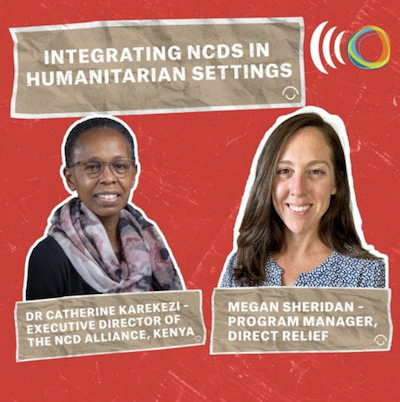World Stroke Organization
Pragmatic solutions to reduce the global burden of stroke: a World Stroke Organization–Lancet Neurology Commission
Publication
02 Apr 2024

The number of people displaced by natural disasters, conflict and other factors continues to grow. In 2023, 299 million people needed humanitarian assistance and protection, (10% more than at the end of 2022, according to the Global Humanitarian Overview 2024). Many of them are living with noncommunicable diseases, or NCDs, but until recently their specific needs were virtually ignored in planning for disaster relief and recovery. That is slowly changing.
From 27 to 29 February, UN Member States will meet at the Global high-level technical meeting on noncommunicable diseases in humanitarian settings. Organised by the World Health Organization and the UN Refugee Agency. The closed meeting in Copenhagen will assemble NCD, emergency, refugee, and health systems experts, along with UN agencies, academic bodies and non-state actors, all dedicated to strengthening the integration of NCDs in humanitarian responses.
Ahead of the meeting, NCD Alliance published the briefing paper, Neglected and in crisis: NCDs as a priority in humanitarian settings, which contains many recommendations on improving how NCDs can be better included in humanitarian responses. Today, we’re speaking with two people who will be closely watching the results of that meeting. Dr Catherine Karekezi is the executive director of the NCD Alliance Kenya, and Megan Sheridan is the Programme Manager of the Global Oncology Network of the US-based organisation Direct Relief.